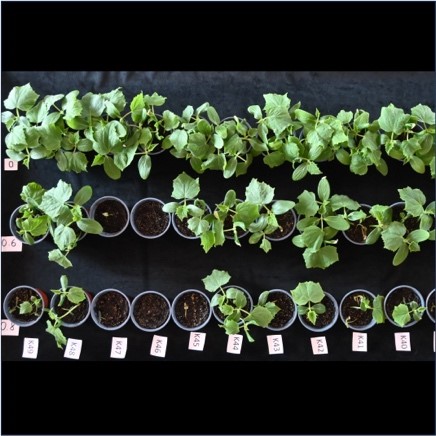Project members
Anja Logo, Barbara Thürig, Thomas Oberhänsli, Jacques Fuchs, Franco Widmer, Johanna Mayerhofer, Pascale Flury
Abstract
The use of compost can reduce losses from soil-borne diseases in vegetable production. However, suppressiveness varies between composts and is unpredictable. The aim of this project is to use microbial markers to diagnose the suppressiveness of composts and thus increase the stability of production and application in practice. We are also investigating whether less effective composts can be improved by inoculation with antagonistic microorganisms and, building upon a previous project, we are investigating whether microbial taxa that are associated with disease suppression as identified by microbiota profiling are suitable as markers for diagnosing suppressive composts. In collaboration with commercial compost producers, we are analysing different composts and testing them in three plant pathogen systems (cress-Globisporangium ultimum, cucumber-Globisporangium ultimum, cucumber-Rhizoctonia solani). Microbes associated with disease suppression are isolated and studied for their disease suppressive effect and their mode of action.
Publications
Logo et al 2025, bioRxiv
https://www.biorxiv.org/content/10.1101/2025.01.17.633646v1
Quick Links
Social Media

